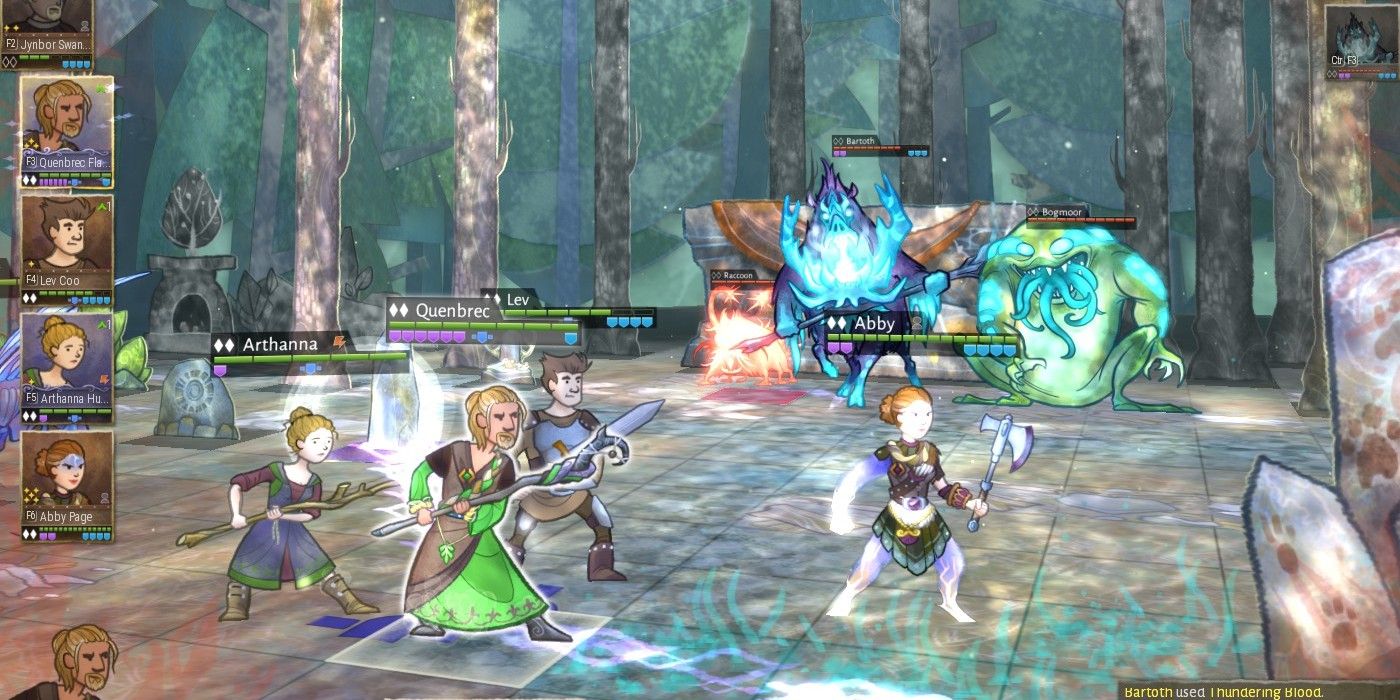

Interfuse a pile of clothing and you can magical constrict enemies. When they are interfused, you then can make use of attack or defensive abilities. Rather than having a pool of abilities to use, mystics need to interfuse with objects around the battlefield. The most different has to be how mystics fight. But you don’t play it like that, simply because of how different the classes and abilities work in Wildermyth. Not Just Another Strategy Tactics RPGĪs for the combat, it is also fundamentally similar to that game I will now avoid mentioning anymore. You can also spend time crafting weapons and gear, though it’s much better to just get those in-between chapters and get new gear from random loot after battles instead. The party can spend time to reinforce the area, claim the area for the townfolks and build bridges and passages to navigate over rivers and mountains respectively. You can split up your party to cover more ground faster. You do get to do more on the world map screen, however. Wildermyth can be played very similarly to those kinds of strategy tactics games. There are a lot of similarities to XCOM 2’s Avatar Project meter, and how the game will add in buffs to enemies over time and you’re not far off. And in some parts of the campaign, enemies will always get stronger after a successful combat encounter which you cannot stop. Every specific interval of days, the enemies will add more cards (so there’s time pressure). The enemy factions will build a deck of cards, each either adding a new enemy type or making existing enemy types stronger. But each campaign, the enemies you face will grow stronger over time. You get a world map where your party will spend time travelling. The core gameplay loop, however, is very much XCOM. You start an adventure with three characters you can customise, all filling in the classic trifecta of RPG archetypes- the warrior, the hunter, and the mystic. Wildermyth is an RPG with a procedural story and XCOM-like combat. And whatever gap the story has, your engaged mind will fill in the blanks. And you just want it to keep going, but it knows when to stop. A storybook that uses just enough words, not more, not less. The word choices, the scenes, the writing, feel like you are reading a captivating storybook. Most of the writing has this flair that reminds me of an American children’s book. There’s lore and weird terms and languages in the world of Wildermyth, but isn’t overly indulge itself with its own jargon. It’s fantasy, but not high-fantasy with people speaking hoity-toity medieval speak. The soundtrack is intimate, cosy, and perfect for its scale.Īnd I also like its distinct flavour of writing. One powerful violin performance can be enough to tug your heartstrings to whatever emotion the scene wanted.
#Wildermyth warrior abilities full#
The music does not have the force of a full orchestra, because it doesn’t need them. character, and enemy bosses are appropriately big and intimidating, despite being 2D artwork.

But that constraint still makes the characters fill with. Characters are cardboard cutouts that are flipped with only slight changes to facial expressions. Wildermyth’s soft colour tones look like from a print of an old book, filled with tales to tell. Now, ignore a bit of the scaffolding that’s still left from the Early Access phase, and you’ll see a simple but expressive art style. It can also happen as it re-render all text just as you change your character name in some parts. The game also hiccups a bit as it loads in assets. (But there are stylistic choices of fonts which are done well, I’m more a bit annoyed at how barebones the UI can feel at times). The options and menu buttons are basic, the font choices for the UI are of a practical choice rather than stylistic. Wildermyth is an indie game that was first released on Steam Early Access, and remnants of it being a work-in-progress can, unfortunately, be seen here and there. What it ends up is a procedurally-powered story maker with XCOM-style strategy tactics combat. Wildermyth, this little new indie title by Worldwalker Games, may have just encapsulated the magical moments from tabletop role-playing, into a tactical RPG. But more particularly, the stories and events the players themselves influence and add on top of whatever the game master sets up in the campaign. A great tabletop role-playing game session, I believe, will always end with a story to remember and events you and fellow players remember.


 0 kommentar(er)
0 kommentar(er)
